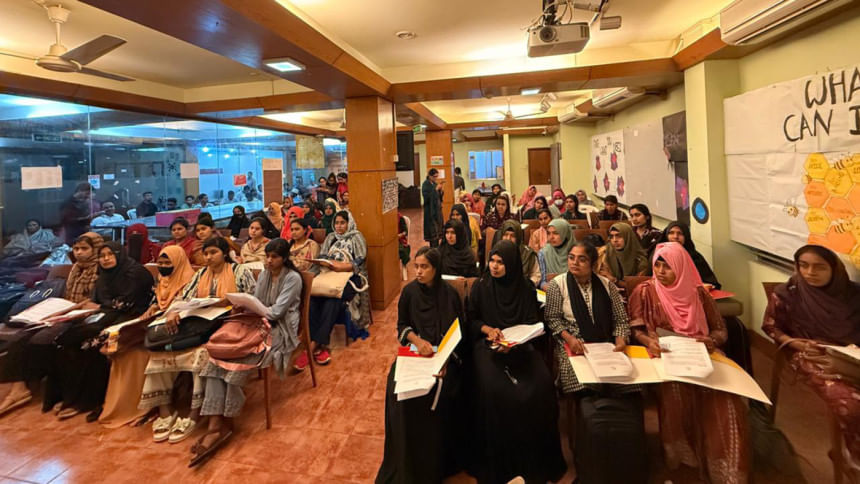AUW admits 108 garment workers under Pathways for Promise programme

The Asian University for Women (AUW) has welcomed 108 female garment workers to its MM Ali Campus in Chittagong this autumn under its flagship Pathways for Promise programme.
The students have joined from 54 factories across Bangladesh, extending the programme's reach. Since its launch in 2016, Pathways for Promise has enrolled 223 students from more than 70 factories. A total of 58 graduates have completed their studies and are now active in their communities.
Earlier this week, AUW signed a Memorandum of Understanding (MoU) with Hirdaramani Bangladesh – Kenpark & Regency, which will fund the monthly salaries of 10 of its employees enrolled in the programme. A separate MoU was signed with Centro Tex Ltd, covering the monthly wages of nine students from its factories.
Several other leading factories are also supporting their employees' education by continuing to pay monthly wages while AUW provides full scholarships funded by partners such as UNIQLO. These factories include Armana Group, Asian Group, Chittagong Fashion Specialized Textiles Ltd, Echotex Ltd, Urmi Group, Giant Group, Masco Group, Mars Sportswear Ltd, Panama Group, Mohammadia Group, Pacific Jeans, Sepal Group and Tusuka Jeans Ltd.
Inditex, one of the world's largest fashion retailers, is providing full scholarships and monthly wages for 50 students from its supplier factories, enabling them to focus entirely on their studies.
"We are proud to see how the Pathways for Promise programme has grown over the years," said Moury Rahman, Director of Admissions at AUW. "This initiative has opened doors for hundreds of women garment workers, and we believe the impact will continue to multiply as more graduates return to their communities as leaders."
The Pathways for Promise programme equips students with English, mathematics and computer literacy, preparing them to enter undergraduate study. By removing financial barriers and building academic foundations, AUW aims to expand access to higher education and strengthen collaboration between the education and industrial sectors.

 For all latest news, follow The Daily Star's Google News channel.
For all latest news, follow The Daily Star's Google News channel. 



Comments